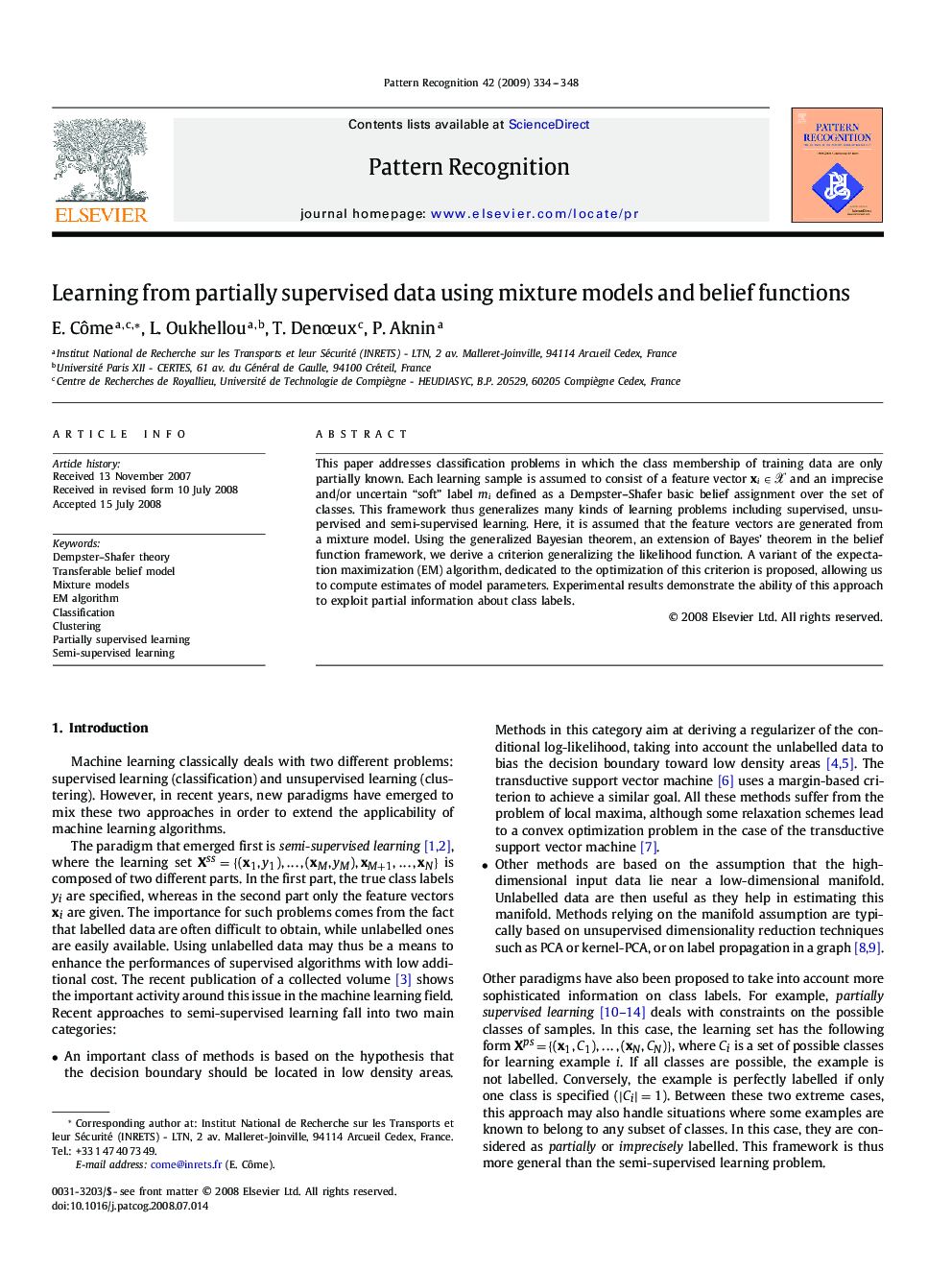| Article ID | Journal | Published Year | Pages | File Type |
|---|---|---|---|---|
| 533684 | Pattern Recognition | 2009 | 15 Pages |
This paper addresses classification problems in which the class membership of training data are only partially known. Each learning sample is assumed to consist of a feature vector xi∈Xxi∈X and an imprecise and/or uncertain “soft” label mimi defined as a Dempster–Shafer basic belief assignment over the set of classes. This framework thus generalizes many kinds of learning problems including supervised, unsupervised and semi-supervised learning. Here, it is assumed that the feature vectors are generated from a mixture model. Using the generalized Bayesian theorem, an extension of Bayes’ theorem in the belief function framework, we derive a criterion generalizing the likelihood function. A variant of the expectation maximization (EM) algorithm, dedicated to the optimization of this criterion is proposed, allowing us to compute estimates of model parameters. Experimental results demonstrate the ability of this approach to exploit partial information about class labels.
